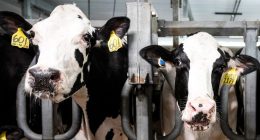Our school system favours the privately educated – so it’s no surprise that the sector inflated grades last year
The number of top GCSE grades has fallen this year. For secondary school teachers, this was hardly a surprise; many of us witnessed how last year’s teacher-assessed grades were subject to a certain amount of “moderating upwards”. What’s striking is where GCSE results have fallen furthest. In private schools, top grades have fallen from 61.2% to 53%, a fall of nearly four times the national average (overall, the proportion of students getting top grades this year fell from 28.9% to 26.3%). Given that most private schools cherrypick their students and have more resources than their state equivalents, why did they feel the need to inflate grades last year?
Private schools have form here. It was arguably as a sop to the independent school sector that Michael Gove introduced the numerical system of grading, whereby students are awarded grades on a nine-point scale. Too many state school students were obtaining A* grades, so Gove introduced the new grade 9 to differentiate the top from the very top. The government seemed to have arrogantly assumed that a further and finer layer of sieving would ensure private school students still came out on top. Private schools have also constantly argued that GCSEs are not rigorous enough. Yet many of them put their students through international GCSEs, which still include coursework elements and are banned in the state sector.
Phil Beadle is an award-winning teacher




